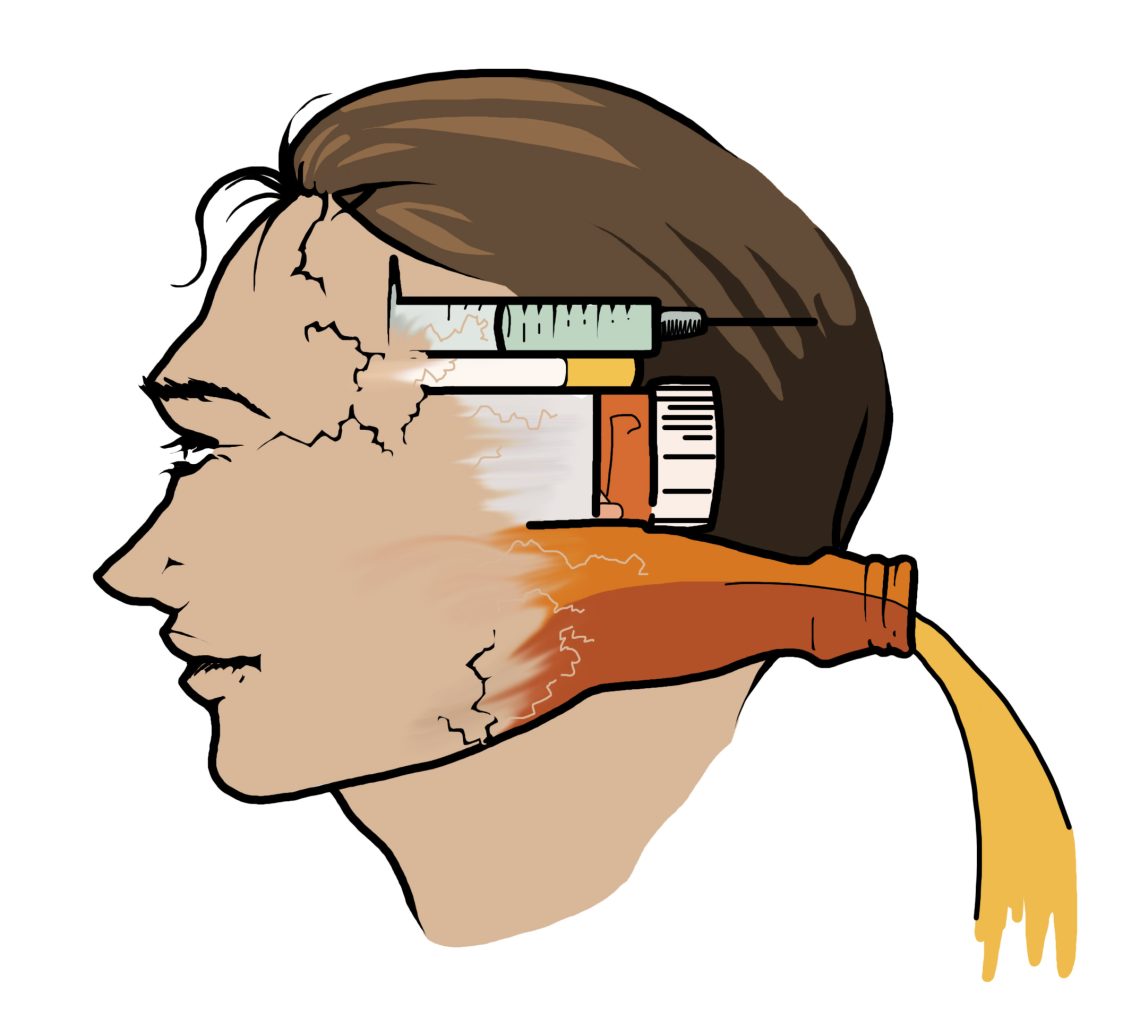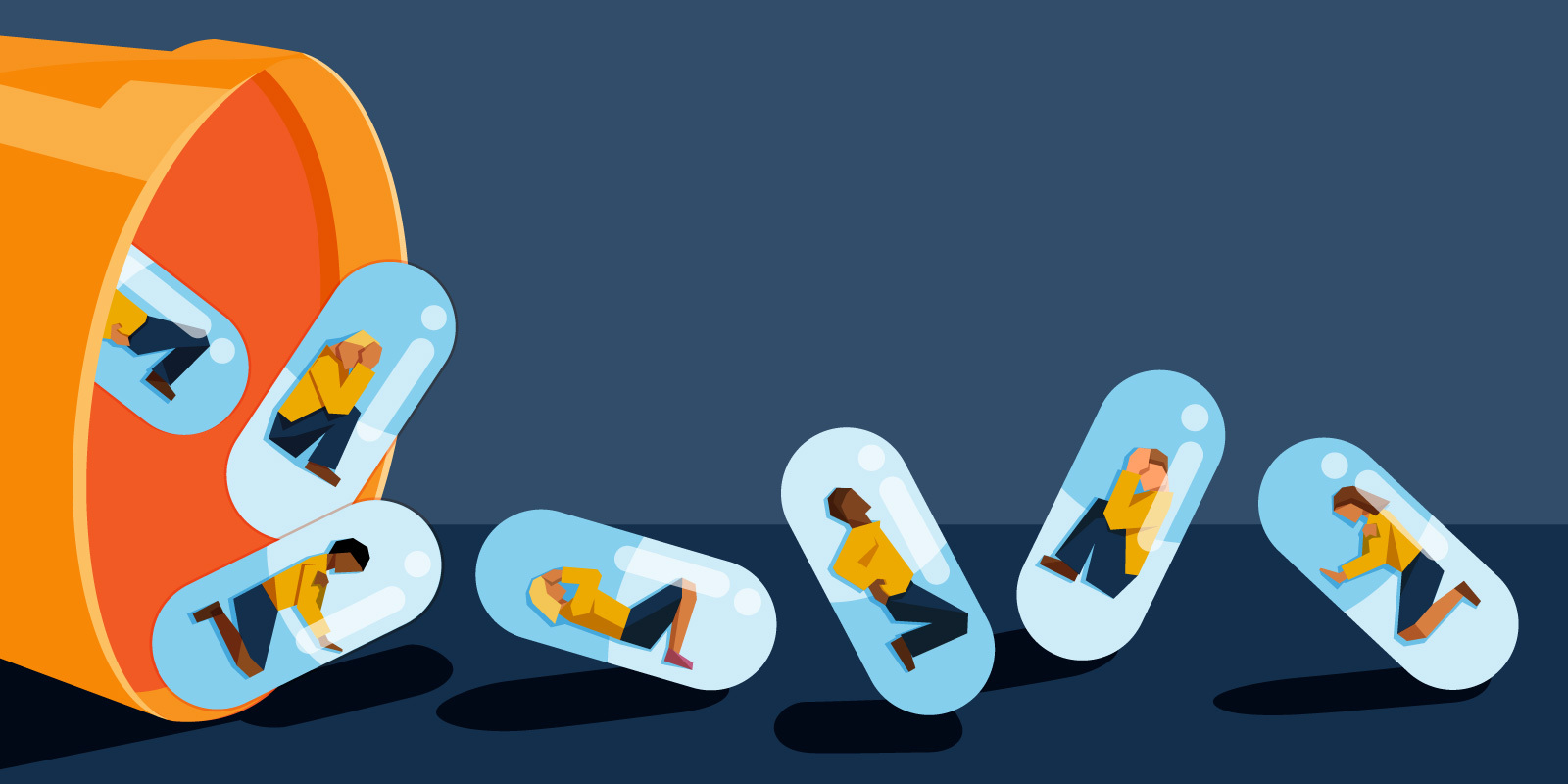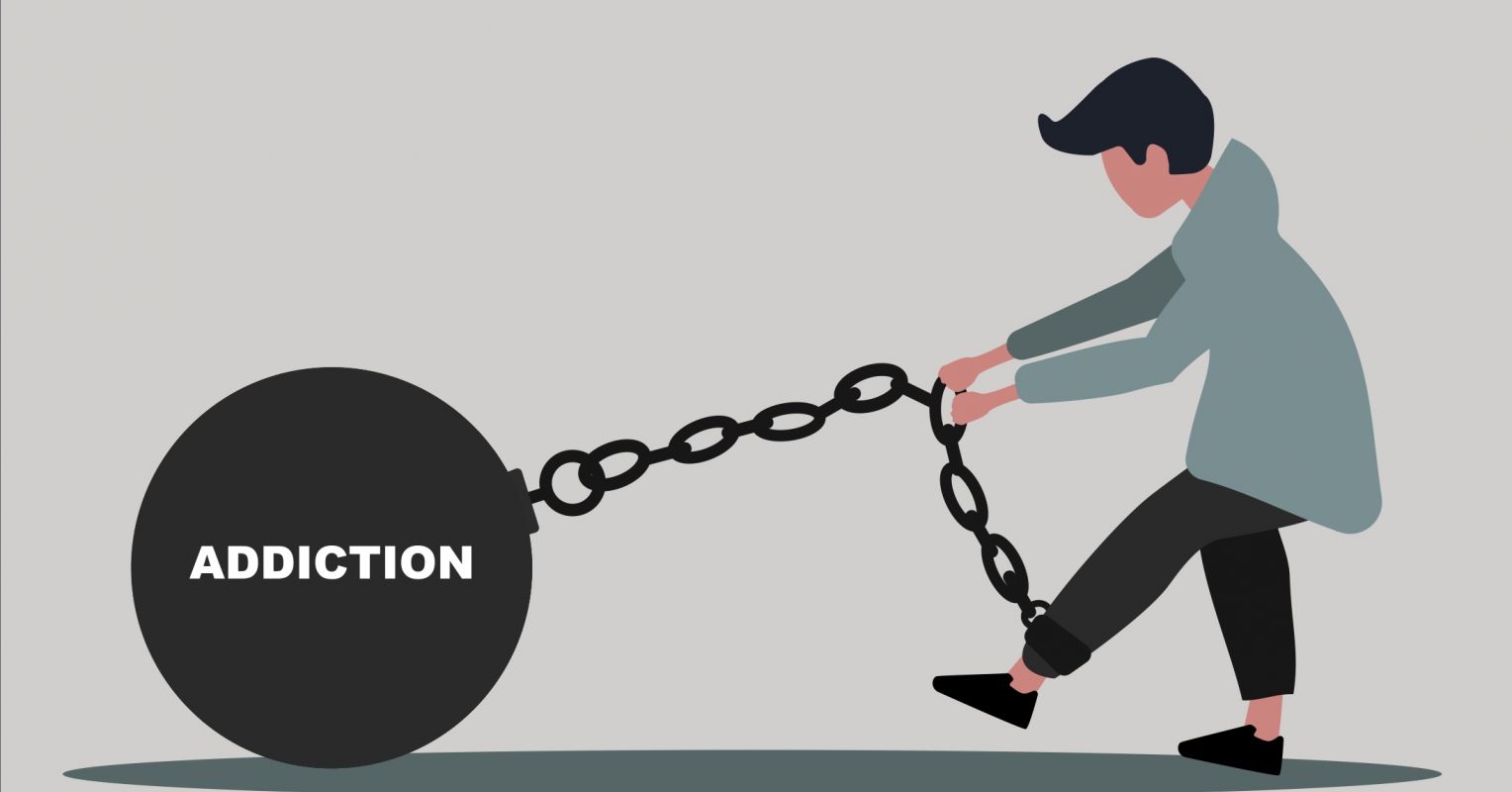
The Psychology of Addiction
Physical addiction certainly accounts for much of the reason people continue using and abusing drugs, but there is also a strong psychological component to addiction. Just getting clean and sober may not address the actual psychology of addiction. Breaking psychological addiction requires a commitment to understanding the root causes of one’s personal addictive behaviour and getting free from the destructive cycle.
The psychology of addiction is a complex pattern of behaviours that lead people to compulsive repetition of a certain behaviour even though they know it’s harmful. Addiction involves both physical and psychological aspects.
Physical addiction is easy to understand. When someone abuses drugs or alcohol, especially over a long period of time, it causes changes in the brain’s neurotransmitters. These chemicals react with centres of the brain that create feelings of pleasure and well-being. Greater quantities of an addictive substance are needed over time to create the same pleasurable feelings. An abuser’s body adjusts to the rising levels of drugs or alcohol and adapts its biochemistry to compensate for the chemicals ingested. Over time, physical addiction results. Abrupt cessation of drug or alcohol use can cause unpleasant and even life-threatening reactions.
Most psychological addiction begins with feelings that are out of control. Strong emotions like rage, jealousy, fear and hopelessness make some people feel helpless. To quell these uncomfortable feelings, abusers turn to drugs, alcohol or compulsive behaviours such as gambling, overeating or pornography.
At first, turning to substances or behaviours to soothe unpleasant feelings is a choice. No one wakes up in the morning and decides they’re going to become a substance abuser or engage in a life-threatening compulsion. However, at some point, the behaviour or drug of choice becomes a necessary ritual and takes over as the primary method of relieving strong feelings.
Repetition can become so ingrained that the original situation that triggered the addiction is no longer necessary to engage in a binge or relapse. Passing a brightly lit bar may trigger an alcoholic to crave a drink even if he’s been sober for years. Pictures of an appealing chocolate cake can send a compulsive overeater into a pleasant daydream about a binge, leading to relapse. Repeated behaviours dig deep grooves into the human psyche, reinforcing addictive patterns and the psychology of addiction.

When is a Behaviour an Addiction?
Some behaviours may be harmful, but they are neither compulsive nor addictive. Individuals who binge-drink on the weekends are engaging in harmful behaviour, but they may not be truly addicted to alcohol and can stop binge drinking when their situation changes. A college senior who binge drinks on the weekends may graduate and embark on a path to a career and family, giving up binge drinking for the responsibilities of adulthood. An addict, on the other hand, would have extreme difficulty giving up their drinking habit even if it meant losing a job or loved ones.
Many compulsive behaviours live in the grey area between self-medication, compulsion and addiction. Overeating, for example, can take on many shades of grey. Self-medicating with chocolate is so commonplace that television commercials urge viewers to indulge in the latest confection as a reward for a job well done or a hard day completed. Such an indulgence can turn into compulsion when the overeater knows that eating an extra chocolate bar packs on unwanted calories.
Compulsion may also be said to occur when an overeater eats even when they know it’s harmful to their health, such as a diabetic feeling a strong urge to eat sweets. Such a compulsion turns into an addiction when the overeater can’t stop and the indulgence turns into an out-of-control binge. Compulsive overeaters, like drug addicts and alcoholics, have been known to steal money or food to feed their habit.
Addictive Personalities
Scientists will always debate whether psychological addiction is nature or nurture, circumstances or genetics. What they do know is that physical addiction has a strong genetic component. In addition, compulsive behaviour is related to obsessive-compulsive disorders and certain anxiety disorders, which also have a strong genetic component.
Mental health experts agree that even though substance abusers and destructive compulsive behaviours have very different etiologies, both types of abuse share similar psychological traits. These traits are often present throughout a substance abuser’s lifetime from earliest childhood on.
Characteristics of an addictive personality include:
- A tendency toward impulsive actions and behaviours.
- Difficulty delaying gratification – they want what they want now and can’t wait to get it.
- Non-conformist nature and discontent with society’s typical goals.
- Strong sense of alienation from society and family.
- Sense of being under constant high stress, even when others in similar situations do not seem to feel the same level of stress. Addictive personalities tend to over-react to stress.

Other factors that feed into the psychology of addiction include physical or sexual abuse as a child, poor self-esteem and a chaotic family or home life. A common thread running through these addiction factors is helplessness – abused children, people with poor self-esteem and children living in chaotic homes often feel helpless. Turning to drugs, alcohol or compulsive behaviours is a psychological method of placing some form of control over a situation. In this case, even negative control such as the action of indulging in an addictive or compulsive behaviour, at least creates boundaries around a situation and puts that situation in the user’s control.
In Conclusion
The common truism that no two people are exactly the same bears repeating when discussing the psychology of addiction. Two family members growing up in the same crazy household, abused by the same parents and inheriting the same genetic disposition, may end up in entirely different situations. One may become a gambling addict, and the other may have no signs of addiction.
Addiction and recovery are influenced by a myriad of factors. No situation is hopeless, and no one’s life is predetermined by genetics, family or personality traits. People have a choice in how they react to a situation and can always choose to take a different course of action than the one they’re on now. Just because someone is born with an addictive personality doesn’t mean they’ll become an addict.
You May Also Like

Running On Fumes: How To Deal With Burnout
2022-12-14
Why Do Some People Have Anger Issues
2023-06-06


One Comment
Pingback: